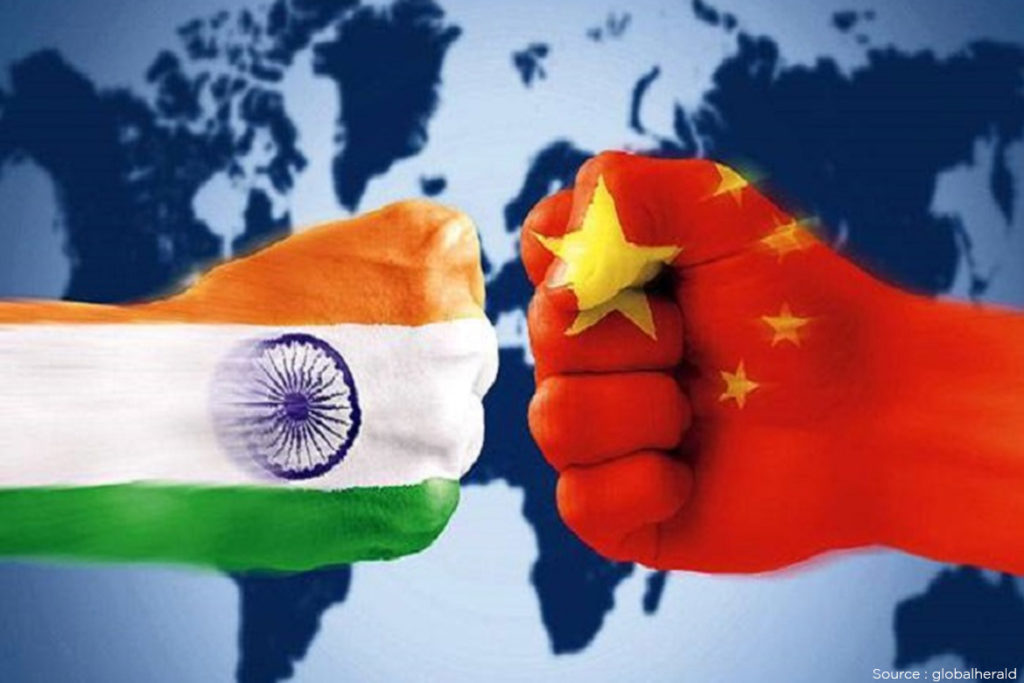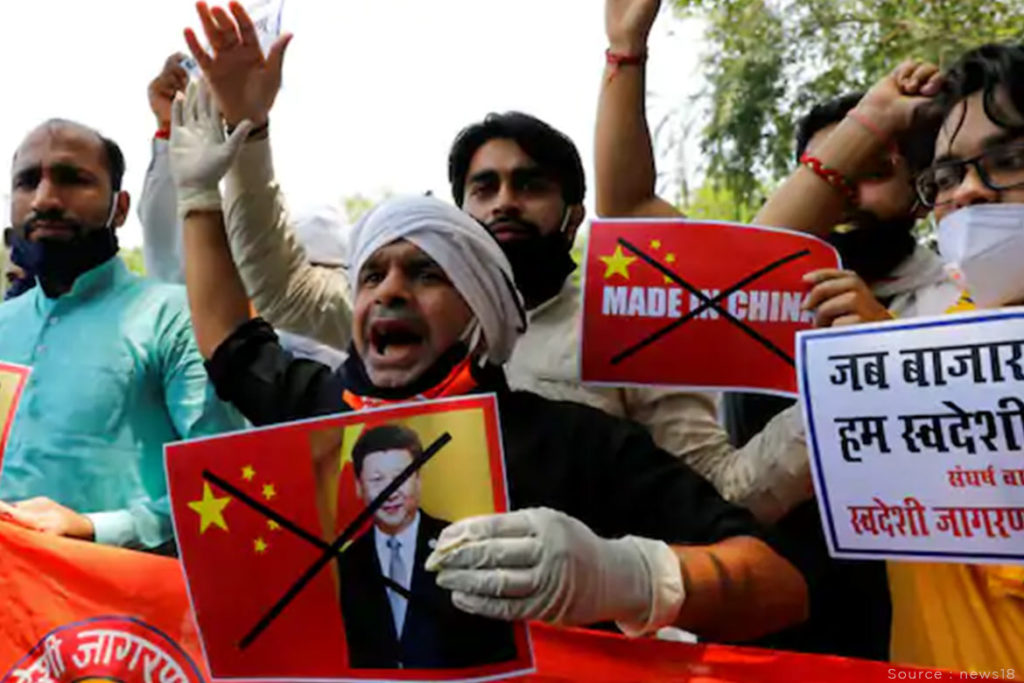The tensions between India and China are rising significantly since May of this year. Recently the fatal clash at Galwan valley in which 20 Indian soldiers got martyrdom act as fuel in the fire. The anti-China sentiments in India are on its peak. People across the country are boycotting Chinese products and Media houses are also urging people to refrain from buying Chinese goods. While one can understand the outrage that Indians feel when they hear about the brutal deaths of their soldiers, turning a border or defence dispute into a trade one is an ill-advised move. In this article, we will try to understand why such a move is not desirable in the current situation of the Indian economy. The reason behind boycotting Chinese products is that we have a trade deficit with China and by boycotting these items, we can stop the flow of money to China and reduce our trade deficit. But if we look at the big picture of this the China exports to India comprise only 3 per cent of its total exports, whereas Indian imports comprise 14 per cent Chinese goods. So finding an alternative to China is much difficult and costly for India whereas China can easily replace India.

Another big issue here is that banning Chinese products will adversely affect the poor of our country. For instance, if Chinese TVs and Phones were replaced by either costlier American or Korean appliances or less efficient Indian ones, richer Indians may still survive this ban by buying the costlier option, but a number of poor, who could have otherwise afforded a TV or Phone, would either have to forgo buying one because it is now too costly or suffers by buying a less efficient Indian one. Not only this, but it will also affect the retailers and wholesalers as many of the Chinese products that are in India are already paid for.
It is important to note here that the major chunk of Chinese imports comprises intermediate goods. So banning trade with China will hit the Indian producers who are dependent on imports from China. A blanket ban on Chinese imports will hurt all these businesses at a time when they are already struggling to survive, apart from hitting India’s ability to produce finished goods.
Also Read: McDonald’s Apologizes For China Restaurant’s Sign Banning Black People
Also, the centrality of China in Global Value Chains made it nearly impossible to exclude China from trade. For instance, if someone buys an iPhone then the person is also paying China as these phones are assembled in China and the people of China are getting paid for this. This was only one example, we don’t know even the involvement of China in other products. Another important concern is that if all of a sudden India stops its trade with China and annul the existing agreements with Chinese firms, then this will convey a negative message in investors community of the world and India might lose its credibility. This implies lesser FDI and low forex reserves.

It has also been argued these days that India should impose higher import duties on Chinese products. Some other suggestions are also coming like India can allow duty-free Chinese primary and intermediate goods, but should slap prohibitive tariffs on final goods. Even leaving aside the rules of the World Trade Organization that India would be violating, this is not an advisable strategy since other countries including China can and most likely will reciprocate in the same way. This will go against India here due to relatively insignificant presence in global trade and value chains. In other words, it is relatively easy for the world to bypass India and carry on trading if India doesn’t play by the rules.
The important thing to understand here is that turning a border dispute into a trade war is not going to solve the border dispute in any way. Replacing China in a short or medium-term is either impossible or India will have to pay a huge cost in which poor will be affected most. The important lesson here is that India should become self-reliant in the long term and we should reduce dependence on China eventually. The government should incentivise Indian start-ups and India should improve the quality of products so that these indigenous products can replace Chinese goods in the country as well as in the world.
